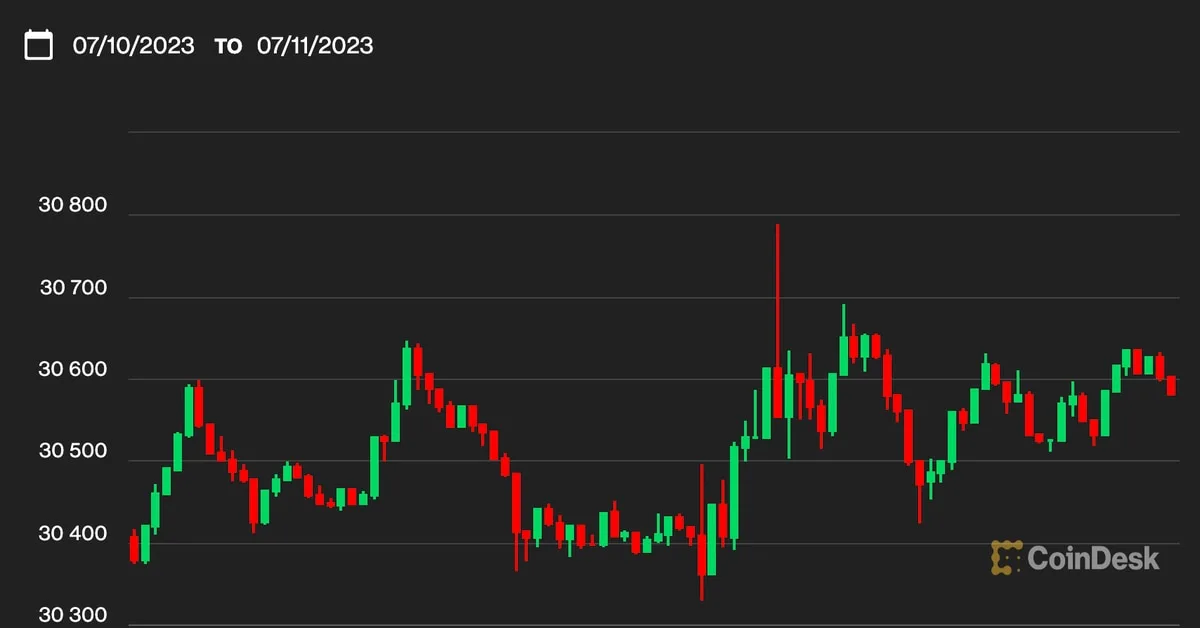As Asia opens for its trading day, bitcoin continues to maintain the $30,000 mark, while ether is flat. CoinGlass data shows that in the last 12 hours, slightly more long liquidations than short liquidations occurred with $7 million longs and $6.73 million shorts liquidated. “The market is on standby, awaiting signals of price increase following a slowdown or pause in rate hikes in the second half of the year, which would be characterized by liquidity inflow,” Bybit’s Ether Chen, its lead financial engineer, told journalists in a note.
Tim Frost, CEO of digital wealth platform Yield App, points to slowing inflation figures but a market confidence that the Federal Reserve will still hike rates as sort of a mixed messaging, and dismisses a recent report from Standard Chartered that bitcoin will hit $120,000 by the end of next year. “For crypto assets, this all likely means continued range trading around current levels. Bitcoin seems to be holding fairly close to $30,000 at the moment which is a near 100% increase from January when it started the year at $16,540,” he said in a note. “There are few assets that perform this well in a “bear” market, and canny seasoned traders will likely have done well on BTC this year.”
Regardless of whether or not Standard Chartered’s price prediction is correct, Frost sees a bull market on the horizon for 2024. “The long-range consensus remains that crypto will enter its next bull market in 2024 following a period of continued consolidation this year and, behind closed doors, huge innovation is paving the way for the next wave of crypto adoption,” he concludes.
The Chinese Yuan (CNY) is not likely to be freely convertible anytime soon, which is a requirement for a CNY stablecoin. This is due to the People’s Bank of China (PBoC) maintaining strict control over the exchange rate of the yuan, keeping it within a narrow band and not allowing it to float freely in international markets. As the IMF’s First Deputy Managing Director Gita Gopinath pointed out in a 2022 address, these aren’t the traits of a global currency.
Taiwan has also been on the radar of Washington as a currency manipulator, as it intervenes to prevent rapid appreciation of its currency which could harm its export-driven economy. But if there’s one thing that unites Taipei and Beijing, it’s that central bankers in neither capital want to relinquish control of their currencies to the market.
